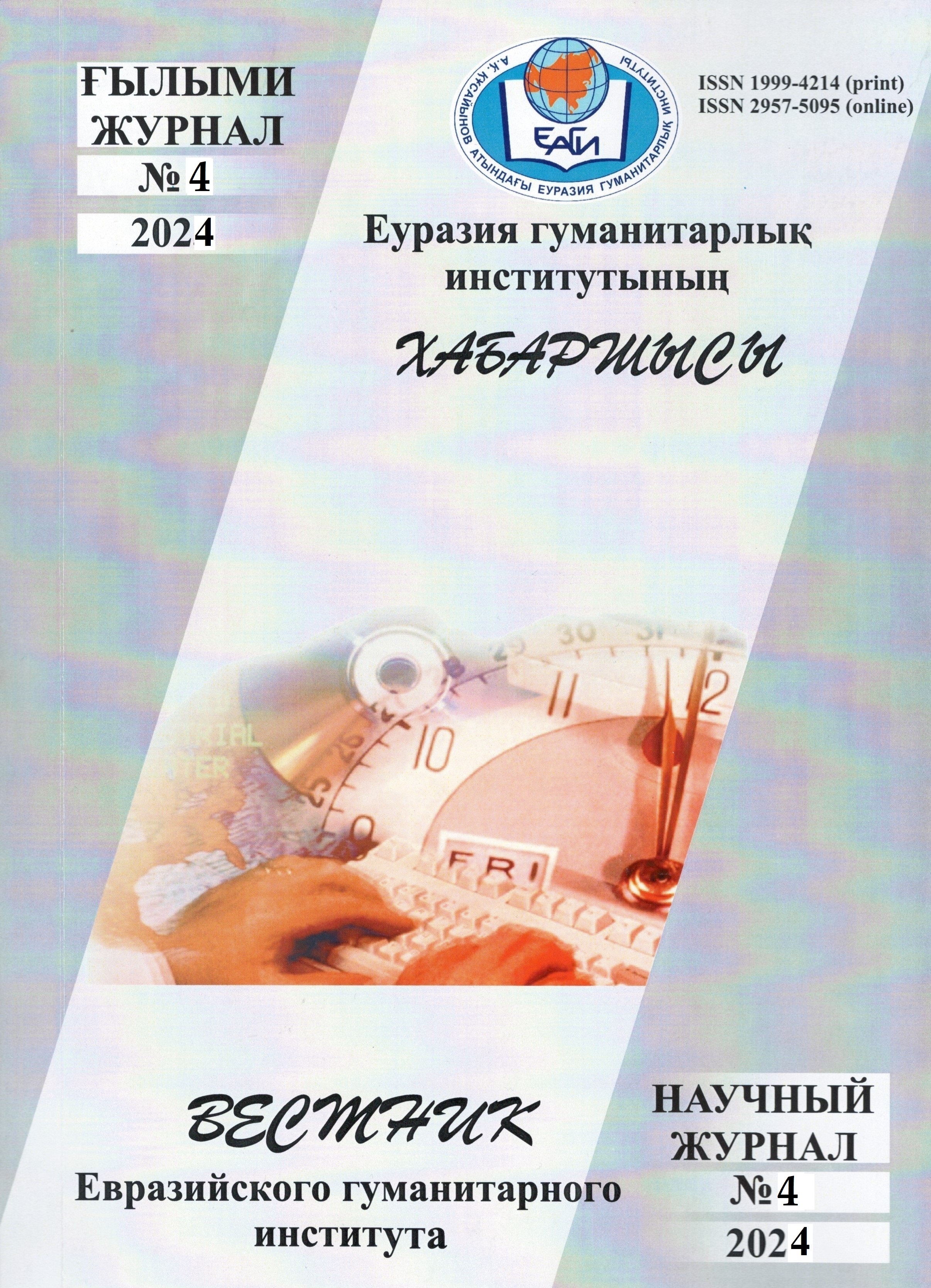SHAMAN’S MELISMA IN KAZAKH STORIES
Keywords:
history, image, tune, shaman, shamanism, religious cult, Shaman's gameAbstract
Shaman's melisma (tune) is one of folklore and spiritual treasures of Kazakh literature and have their roots in ancient traditions and beliefs. In nomadic Kazakh life shamans had a wide functional activity, they became zhyraus(folk poet and singer), voodoo healers, clairvoyants, spiritual leaders of the people. Shamanic motifs in literature are rooted in distant mythology, continued in legends, songs, stories, not only played a special role in social life, but also became an element reflecting the attitude of the people towards life. The works of Kazakh folklore and the image of the shaman found in them are evidence of the antiquity of the theme. In literature through various phenomena of life, actual characteristics of the reality of life, image-living manifestations the image of the shaman took a full-fledged place. In the Kazakh steppes in the XVIII century, special attention was paid to witchcraft, researches were conducted, imagery on paper began. In addition to Kazakh researchers, shamanism in the Kazakh steppe was searched and analysed by Russian scholars with great interest.
The article studies the theme of shaman in Kazakh literature, shows the relationship and specificity of literature and myth, folklore to reveal the image of the shaman in the stories. Its artistic features, subject, content meaning and reflected in literature will be analysed. Definitions of the name of diffenert nation ‘shaman’ are given and an overview of the rules according to the research works of prominent scholars. The image of the shaman, which is the premise of the research, is portrayed in the stories not only as a soul engaged in healing, but also as a symbol of tradition and culture, understanding the problems of humanity and society, providing moral support. Such an image is often revealed in a dialogical relationship, creating a complex image.
The article emphasises the analysed pastime of the shaman, his actions in the process of the game, demonstrates that the shaman's entertainment is based on spiritual-attractive ancient knowledge. The game of the shaman is analysed with specific examples from works. In Kazakh literature, the subject of study were the works of Zhusupbek Aimautov ‘Black Shaman’, Zhumeken Nazhmidenov ‘Shaman’, Duman Ramazan ‘Shaman and Evil Spirit’, where the role of the shaman was evaluated. Assertions about shaman and shamanism in different epochs of literature are expressed through stories. The place of the shaman in the folk worldview and belief system is reflected in the works, the influence in the society is determined.


